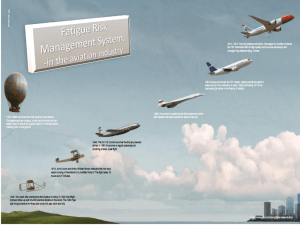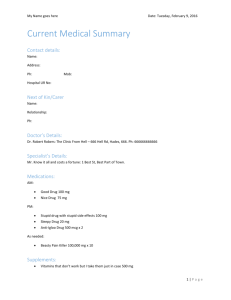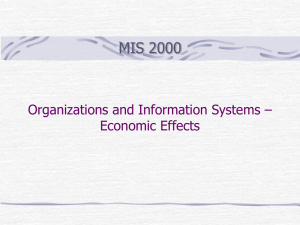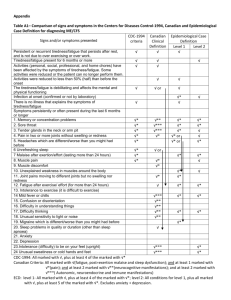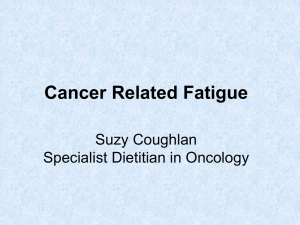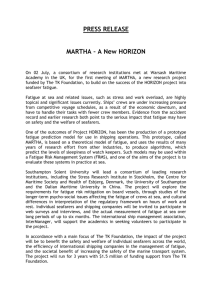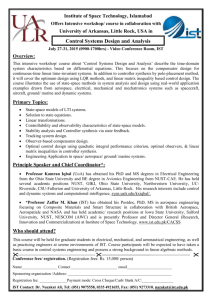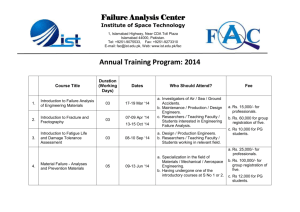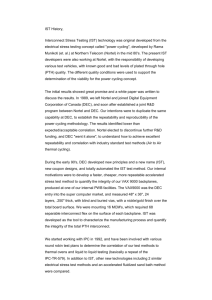cancer related fatigue syndrome: feasibility study c/o ist
advertisement
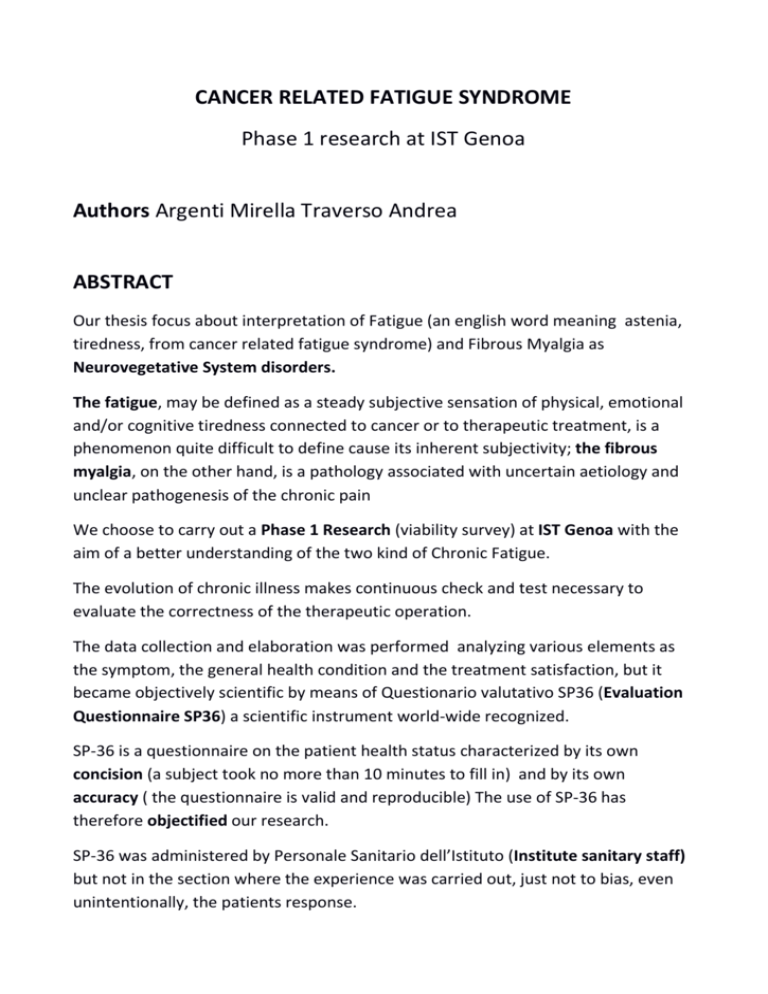
CANCER RELATED FATIGUE SYNDROME Phase 1 research at IST Genoa Authors Argenti Mirella Traverso Andrea ABSTRACT Our thesis focus about interpretation of Fatigue (an english word meaning astenia, tiredness, from cancer related fatigue syndrome) and Fibrous Myalgia as Neurovegetative System disorders. The fatigue, may be defined as a steady subjective sensation of physical, emotional and/or cognitive tiredness connected to cancer or to therapeutic treatment, is a phenomenon quite difficult to define cause its inherent subjectivity; the fibrous myalgia, on the other hand, is a pathology associated with uncertain aetiology and unclear pathogenesis of the chronic pain We choose to carry out a Phase 1 Research (viability survey) at IST Genoa with the aim of a better understanding of the two kind of Chronic Fatigue. The evolution of chronic illness makes continuous check and test necessary to evaluate the correctness of the therapeutic operation. The data collection and elaboration was performed analyzing various elements as the symptom, the general health condition and the treatment satisfaction, but it became objectively scientific by means of Questionario valutativo SP36 (Evaluation Questionnaire SP36) a scientific instrument world-wide recognized. SP-36 is a questionnaire on the patient health status characterized by its own concision (a subject took no more than 10 minutes to fill in) and by its own accuracy ( the questionnaire is valid and reproducible) The use of SP-36 has therefore objectified our research. SP-36 was administered by Personale Sanitario dell’Istituto (Institute sanitary staff) but not in the section where the experience was carried out, just not to bias, even unintentionally, the patients response. The statistic sample, formed by 24 patients, provided the matter for the elaboration of interesting issues. The data gathering was carried out for every patient as follows: At beginning and conclusion of treatment Every examination For the three scheduled examinations It was chosen to carry out three treatment (the first two with a gap of one week and the third one after two weeks) to obtain the best sampling possible in the time allotted (3 months) as initially agreed with IST. Every patient was monitored for about 35/40 days. Working in a Public Structure it was necessary the patient acquiescence by “Consenso informato”. The results of this experience analyze the element of pain and tiredness present in CRFS and, at the same time, the patient’s approval of the treatments. The osteopathic protocol used for this research is organized in a set of four evaluation tests used for diagnostic purpose (beginning of a session) and for assessment (end of treatment). We consider fundamental, using a single Therapeutic Protocol and even at Neurovegetative level, the difference between cranial compression and an inversion of CraniumSacral rhythm. Given the result of this research we can affirm, without any doubt, the coefficient of approval of the treatment is substantially high, confirmed by the numerous request to proceed with further cycles of treatment, by the patients to Doctor Dini, Head Physician of Antalgic Therapy Ambulatory or directly to us. Objective evaluation had shown interesting conclusion about the relation between neurovegetative system, the accommodations of cranial base in their capabilities of neurological facilitation of inferior limbs and the fluctuations of cefalorachidian liquid. All terms of this thesis had an overall validation: on the basis of the data collected, the hypothesis to assume the CRSP as a neurovegetative disorder has shown good foundation. Furthermore applying the same protocol to oncological patient and fibromyalgic ones showed the importance of SNV in this second pathology. To remind that our research is a Phase 1, based on short-term outcomes, at this stage it is not possible to forecast how will evolve the equilibrium reached by the patients. That is the objective limit of this research, it could be overcome with an enhanced experimental research (phase 2 and over) Our cooperation with IST became, by and by, in a constant, professionally reliable, presence to the point that the Sanitary Management, via Doct. Dini, Head Physician of Antalgic Therapy, has request to Regione Liguria to formalize our role, keeping the voluntary basis of the people involved.It will permit the further possibility of research and experiments, using scientific parameters, and evaluation on mid and long-term outcomes.
